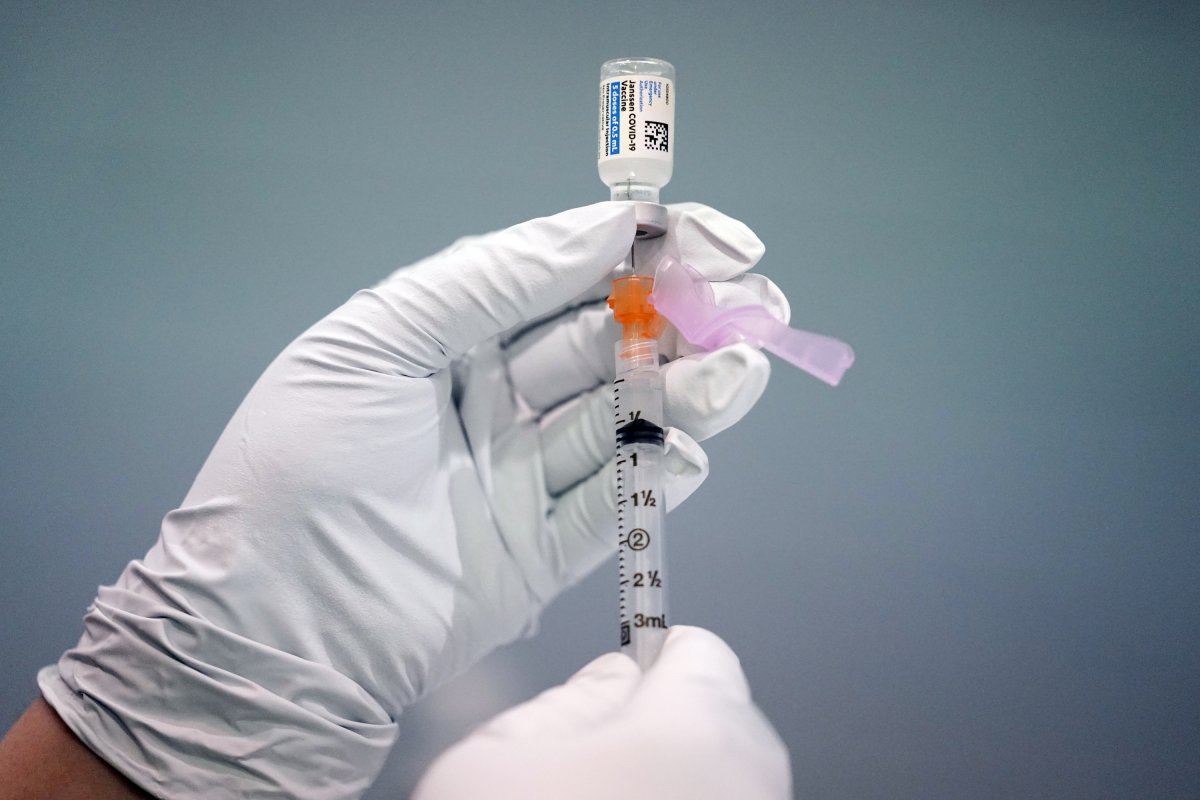The Centers for Disease Control and Prevention (CDC) received reports that 100 people who got the Johnson & Johnson COVID-19 vaccine developed Guillain-Barre syndrome, a rare autoimmune disorder where one's own immune system attacks the nerves, causing muscle weakness and sometimes paralysis.
These reported cases only represent a fraction of the nearly 13 million Americans who received the vaccine. Most cases occurred in men age 50 and over about two weeks after their received their single dose, the CDC said in a statement.
For more reporting from the Associated Press, see below:

The CDC said it would ask its panel of outside vaccine experts to review the issue at an upcoming meeting. J&J didn't immediately respond to a request for comment.
The government said the vaccines most used in the U.S., made by Pfizer and Moderna, show no risk of the disorder after more than 320 million doses have been administered.
Guillain-Barre syndrome occurs when the body's immune system mistakenly attacks some of its nerve cells, causing muscle weakness and sometimes paralysis that typically is temporary. An estimated 3,000 to 6,000 people develop the syndrome each year, according to the CDC.
Vaccines historically provide broad protection with little risk but come with occasional side effects just like other drugs and medical therapies. The three COVID-19 vaccines used in the U.S. were each tested in tens of thousands of people, but even such huge studies can't rule out extremely rare side effects.
The CDC and the Food and Drug Administration have been monitoring side effect reports submitted by physicians, drugmakers and patients to a federal vaccine safety database.
Guillain-Barre can be triggered by a number of infections, including flu, cytomegalovirus and Zika virus. But there have been rare cases in which people develop the disorder days or weeks after receiving certain vaccines.
J&J's vaccine was highly anticipated because of its one-and-done formulation and easy-to-ship refrigeration. But early on, it was linked to another rare risk, of blood clots, and the company hasn't been able to produce as much as expected because of problems at a Baltimore factory that helps make the shots.
Uncommon Knowledge
Newsweek is committed to challenging conventional wisdom and finding connections in the search for common ground.
Newsweek is committed to challenging conventional wisdom and finding connections in the search for common ground.
About the writer
Lauren Giella is a Newsweek National reporter based in New York. Her focus is reporting on breaking and trending U.S. ... Read more
To read how Newsweek uses AI as a newsroom tool, Click here.






 Subscriber content
Subscriber content